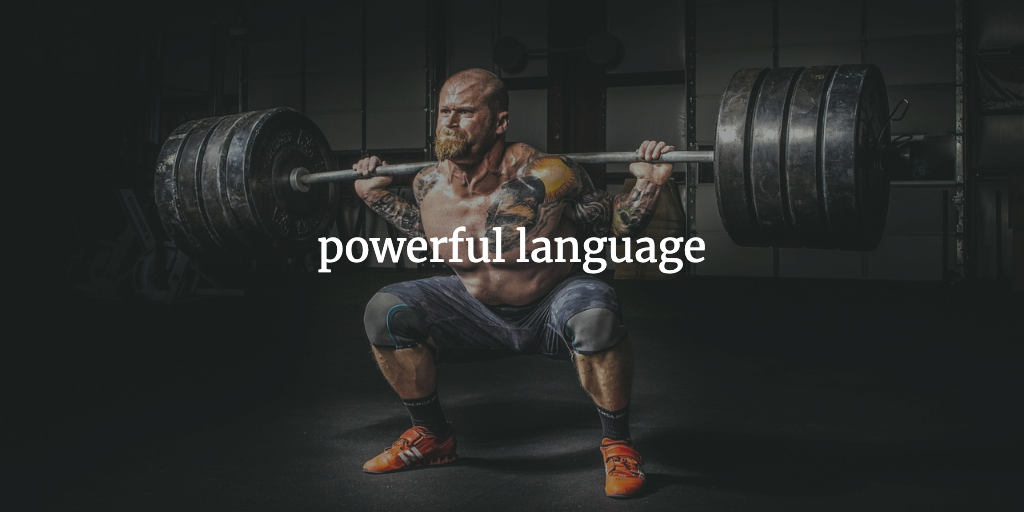
To understand the concept of powerful language, let’s take a closer look at what powerful language and behaviour is and what it isn’t. This way we can gain insight into the difference between the powerful and the unconscious.
What are the powerful doing?
- proclaim
- postulate
- prescribe
- enact
- command
What are the unconscious doing?
- complain
- demonstrate
- protest
- obey / comply
- propose / apply
Unconscious language: What powerful language isn’t
Our way of expressing opinions and thoughts has been watered down over the centuries. We have been trained to embrace mediocrity over choosing excellence1. Here are some examples of how softening the blow or the famous bullshit sandwich when giving feedback has made it into our everyday colloquial verbiage. Any time you hear words like these in sentences, you immediately know that this is not powerful:
- kind of, sort of
- a little
- hopefully, maybe
- just an idea
- just kidding (after expressing intuitive truth)
- everyone (generalisation when talking about personal experience)
Unconscious language is also used to state what you don’t want, completely omitting what you want instead. This is not productive.
If you express yourself screaming you just gave away your power. An unnecessarily loud voice doesn’t lend power to the content of what you have to say. On the contrary. If you look yourself in the mirror at that moment, you notice your likeness to a little kid on the floor screaming and crying to get candy in the supermarket. The same goes for aggression or passive aggressive demeanour. It is the behaviour of wounded souls.
Forbidding or limiting someone in their freedom or putting them (or yourself) down isn’t powerful either. It is a sign of weakness and projection of shame. The associated feeling is jealousy, insecurity or a low sense of self-worth.
The unconscious are insecure, manipulative and controlling. The unconscious deny the existence of the powerful or take their existence as a personal attack. The unconscious emphasise activity over the state of being. The unconscious complain about what they can’t control and avoid taking responsibility for what they can control. The unconscious have weak boundaries and they withdraw, avoid or play the victim card or over-emotionalise when their boundaries are breached.
Powerful language
The powerful are encouragers, enablers and empowerers. The powerful accept the existence of equally or more powerful next to them and take it as a personal development opportunity. The powerful find a gracious balance between doing and being. The powerful accept what they can’t control and work with it as a creative boundary to enhance the focus on their capabilities and take responsibility and action with what they can control. The powerful have strong and humble boundaries that they compassionately and confidently set up and protect.
Your thoughts create your reality. In order to create a powerful reality, let’s go on the journey of becoming aware of powerful language and thought patterns. In order to express yourself in a conscious way using powerful language, keep what you say:
- Active
- Positive
- Present
Examples in practice
An example in practice when talking to your kid would be:
- Unconscious: Don’t be late.
- Powerful: I want you to be home at 8 p.m.
Turn a jealousy driven projection into a development opportunity and embrace discomfort:
- Unconscious: I don’t want you to have contact with that creep.
- Powerful: I hear you met a very interesting person. Please tell me what fascinates you about them.
A fluid process
You might see yourself on the unconscious and the powerful side. Humans are flawed and fluid. It’s OK. If you’re mostly unconscious, I encourage you to adopt the powerful mindset. If you’re mostly powerful, take your unconscious moments as a learning impulse.
More on that in an upcoming article. A work-in-progress version of my notes can be found here. ↩︎
